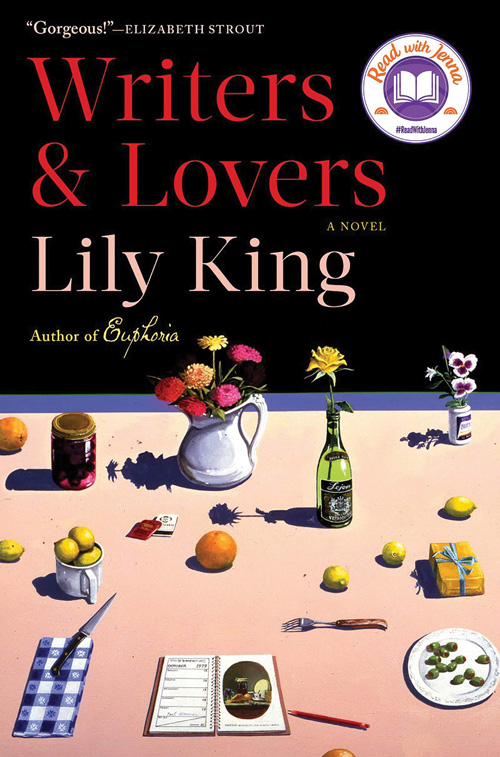The problem with writing a multi-awardwinning bestseller is that eventually you have to follow it up. Maine-based author Lily King’s 2014 novel Euphoria, a warm and witty tale based on the pioneering work of anthropologist Margaret Mead, evidently gave its writer a few headaches. It’s taken King six years, during which two other attempts were shelved, to publish her new novel Writers and Lovers. She was right not to rush it. It’s not an instantly obvious knock-out like Euphoria, but there is real emotional heft and thought-provoking insight in this worthwhile read.

Casey is a 31 year old ex-golf prodigy, aspiring author and in-the-meantime waitress, juggling the demands / promise of the titular writers and lovers in her life. Her judgment regarding pretty much everything – men, family, work, money (she has a huge student loan debt, a crummy-paying job, and lives in a beautified potting shed) – has been shattered by the sudden death of her mother.
The most powerful and authoritative writing is focussed around the debilitating and occasional magical-thinking effect of the loss of a mother
In the first few chapters she introduces us to the large cast of friends, family, and potential partners who populate her small still-spinning world. There is too much standard deposition in these early pages to keep us constantly gripped, but King’s evocative descriptions of the dragging tides of grief repeatedly stand out as signals of riches to come; “(I feel) the urge to tell my mother, tell her that I am okay today, I have felt something close to happiness… She will want to know that. But I can’t tell her… My mother will be worrying about me, and I can’t tell her that I am okay.”
This three steps forward, two steps back pattern will be familiar to anyone who has suffered grief, and it’s no surprise to discover that King’s own mother died shortly after Euphoria was published. As the book goes on, stock characters give way to more fleshed-out ones as we begin to take sides in Casey’s vexing love triangle. But the most powerful and authoritative writing remains focussed around the debilitating and occasional magical-thinking effect of the loss of a mother. The sensing of a maternal soul in the intense gaze of an animal, the disarming power of a vulnerable voice trying its damnedest to sing – these oddities, and the many other inexplicably touching experiences which loss brings, form the most memorable moments in the book.
The exception is an affecting section in which Casey is left to look after her boyfriend’s sons, two under-eight year olds still missing their late mother. The boys revel in her warm womanly presence, smelling her, teasing her, and in a beautifully written passage, creeping timidly into her bed in the middle of the night, pressing against her soft, yielding, reassuring body. In the end, despite a few positive thinking platitudes & a stretched, almost Hollywood, conclusion to one narrative strand, it’s perfectly wrought scenes like this which make King’s ultimately very romantic novel such a rewarding read.

Mexican writer Juan Pablo Villalobos also has a dauntingly well-received novel in his past CV; his exuberant, fiercely intelligent 2013 debut Down the Rabbit Hole was a critical smash. I Don’t Expect Anyone to Believe Me, a wild-eyed, motor-powered, hilarious blast about kidnapping, gangsters and political corruption, will draw a similar crowd. If you like the idea of being carried away on a chutzpah-fuelled thrill-ride, that means you. Delicious.









